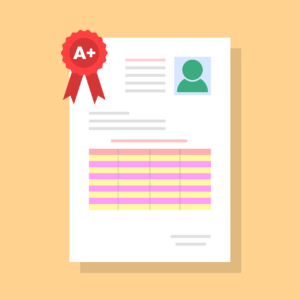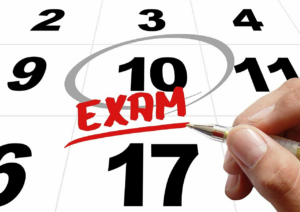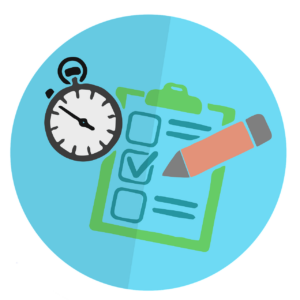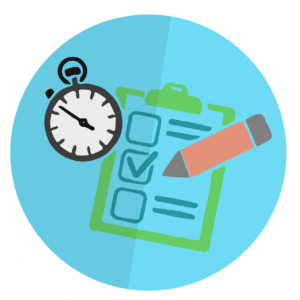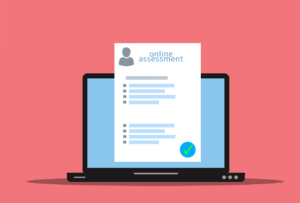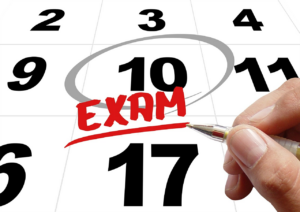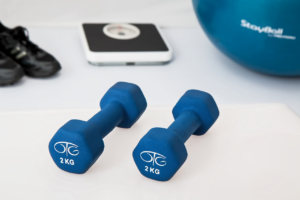Are you a nursing student looking to become a registered nurse? Then you’ll likely need to take the NCLEX RN exam. The National Council Licensure Examination for Registered Nurses (NCLEX RN) is a standardized test that assesses your knowledge and skills in nursing practice. It’s a crucial step in obtaining licensure as a registered nurse, and passing the exam is required by all states in the United States and most Canadian provinces.
The NCLEX RN exam can be a daunting and overwhelming experience, but with proper preparation and study techniques, you can increase your chances of passing the exam on your first attempt.
In this article, we’ll explore the key concepts and skills tested on the exam, offer tips for studying and preparing for the exam, provide strategies for managing test anxiety, and offer test day tips and techniques to help you succeed.
So, let’s dive in and prepare for the NCLEX RN exam together!
Key Takeaways
- The NCLEX-RN exam is a standardized test for nursing practice licensure required in most US states and Canadian provinces.
- Proper study techniques, including time management, prioritizing topics, and practice questions, are essential in creating a study plan to cover necessary material.
- On test day, arriving early, dressing comfortably, and managing nerves with deep breaths are important for success.
- Passing the NCLEX-RN exam is crucial for obtaining licensure as a registered nurse and pursuing a career in patient care. Proper preparation and study techniques can lead to passing on the first attempt.
Understanding the NCLEX RN Exam
The NCLEX RN exam is no joke, but understanding its format and content is key to acing it. The exam format consists of computer-adaptive testing (CAT), which means the exam will adapt to your level of ability.
The exam will start with a moderate question, and depending on whether you answer it correctly or not, the next question will be easier or harder. To pass the NCLEX RN exam, you must meet the passing score requirements set by the National Council of State Boards of Nursing (NCSBN).
The passing score requirements are based on the difficulty of the questions you answer, and the minimum number of questions you must answer to pass the exam is 75. However, the exam can have up to 265 questions, and the length of the exam will depend on how well you’re doing.
It’s important to note that the NCLEX RN exam is not just a test of your knowledge, but also of your critical thinking, decision-making, and problem-solving skills.
Key Concepts and Skills Tested on the Exam
Brushing up on essential nursing concepts and skills is crucial to conquering the NCLEX-RN, ensuring success in your career as a registered nurse.
The NCLEX-RN exam is designed to test your knowledge and understanding of key nursing concepts and skills, including patient care, pharmacology, and medical procedures. The test format consists of multiple-choice questions, with some questions requiring you to select multiple correct answers.
To pass the NCLEX-RN exam, you must achieve a passing score, which is determined by the National Council of State Boards of Nursing (NCSBN). The passing score is based on the difficulty level of the questions you answer correctly, and it varies from state to state.
To prepare for the exam, it is important to review and study the key concepts and skills tested on the exam, as well as practice answering multiple-choice questions. Additionally, taking practice exams and seeking guidance from experienced nurses can help you feel more confident and prepared for the NCLEX-RN exam.
Tips for Studying and Preparing for the Exam
When preparing for the NCLEX-RN exam, it’s essential to create a study plan to ensure you cover all necessary material. Utilizing practice tests and study guides can help identify areas of weakness and provide additional resources for improvement. Collaborating with peers and mentors can also provide valuable insight and support throughout the studying process.
To further enhance your preparation, it’s important to take breaks and prioritize self-care. This can include exercise, healthy eating, and getting enough sleep. It’s also helpful to stay organized and keep track of your progress, such as by using a planner or study journal.
In addition, it’s important to stay focused and avoid distractions while studying. This can include turning off your phone or finding a quiet study space. Finally, don’t forget to stay positive and believe in yourself. With dedication and hard work, you can succeed on the NCLEX-RN exam.
Creating a Study Plan
Crafting a study plan is like mapping out a journey to success in passing the NCLEX RN exam. It’s crucial to have a plan in place to ensure you cover all necessary topics and have enough time to review them thoroughly.
Here are four essential steps to creating an effective study plan:
-
Time management: Determine how much time you have before the exam and allocate it accordingly. Be realistic about how much time you can devote to studying each day, and make sure to include breaks and rest days to avoid burnout.
-
Study resources: Identify the study materials you’ll use, such as textbooks, review courses, or online resources. Make sure to choose materials that align with your learning style and cover all the topics on the exam.
-
Prioritize topics: Identify the topics you need to focus on the most and prioritize them in your study plan. This will ensure you cover the most important information first and have enough time to review it thoroughly.
-
Practice questions: Incorporate practice questions into your study plan. This will help you assess your knowledge and identify areas where you need more review. Practice questions also simulate the exam experience, making you more comfortable with the format.
Using Practice Tests and Study Guides
Boost your chances of success by using practice tests and study guides to prepare for the NCLEX RN exam! These resources can help you familiarize yourself with the format and content of the test, identify areas where you need improvement, and build your confidence.
Practice tests simulate the actual exam experience and allow you to practice time management and test-taking strategies. Study guides provide an overview of the key concepts and topics that will be covered on the exam, and can help you focus your studying on areas that are most important.
In addition to practice tests and study guides, consider utilizing online resources and seeking out tutoring or study groups. There are many online resources available, such as review courses, flashcards, and question banks, that can supplement your studying and help you identify areas where you need more practice.
Tutoring or study groups can provide additional support and guidance, and allow you to ask questions and learn from others. By incorporating these resources into your study plan, you can feel more confident and prepared for the NCLEX RN exam.
Collaborating with Peers and Mentors
Collaborating with peers and mentors can be a valuable way to gain insight and guidance while studying for the nursing licensure test. Your peers can provide support, motivation, and encouragement during the stressful exam preparation period. You can share study materials, discuss difficult topics, and quiz each other to reinforce your knowledge. Additionally, studying with peers can help you identify your strengths and weaknesses, as well as develop effective study strategies.
On the other hand, mentors can provide you with invaluable advice and guidance based on their own experiences. They can give you tips on how to approach the exam, what to expect on test day, and how to manage your time effectively. They can also help you identify areas where you need to improve and give you personalized feedback on your performance.
Overall, the benefits of mentoring and peer support during exam prep cannot be overstated. They can help you feel more confident, prepared, and ultimately successful on test day.
Strategies for Managing Test Anxiety
To overcome test anxiety, you need to focus on your breathing and remind yourself that you’re capable of passing the NCLEX RN exam. When you feel anxious, take a deep breath and hold it for a few seconds before slowly exhaling. Repeat this exercise several times until you feel more relaxed.
You can also try other relaxation techniques such as progressive muscle relaxation, visualization, and meditation. Another strategy for managing test anxiety is cognitive restructuring. This involves changing negative thoughts into positive ones.
For example, if you’re thinking "I can’t do this,"try replacing it with "I’ve studied hard and am prepared for this exam."It’s important to challenge negative thoughts and replace them with positive ones to help reduce anxiety. Additionally, make sure to get enough rest, eat a healthy diet, and exercise regularly to help manage stress levels.
Remember, with the right mindset and preparation, you can overcome test anxiety and pass the NCLEX RN exam.
Test Day Tips and Techniques
On test day, you’ll want to make sure you arrive at the testing center early and bring all necessary materials, like a photo ID and a calculator, to ensure a smooth experience.
It’s also important to dress comfortably and in layers, as the testing center may be too hot or too cold. Once you’re settled in, take a few deep breaths and remind yourself that you’ve prepared for this moment and you’re ready.
To help manage any test day jitters, try incorporating relaxation techniques. You can practice deep breathing or visualization exercises to calm your nerves.
Additionally, time management is key during the exam. Use the provided scratch paper to jot down any important notes or formulas to refer back to later. And if you find yourself stuck on a question, don’t waste too much time on it – move on and come back to it later.
Remember, staying calm and focused throughout the exam will help you perform your best.
Next Steps After the Exam
After completing the test, you may feel a sense of relief and accomplishment, and it’s important to take some time to decompress and reflect on your experience. This reflection can help you identify areas of strength and weakness, and inform how to approach your future career opportunities.
Additionally, you may want to share your experience with others who are preparing for the exam, or seek support from fellow nurses who have been through the process.
Once you have completed the NCLEX-RN exam, you’re on your way to becoming a registered nurse. You should start exploring career opportunities and researching job openings in your area. Many hospitals, clinics, and other healthcare facilities require RNs to hold a valid license, so passing the NCLEX is a crucial step in securing employment.
With your license in hand, you can begin pursuing your passion for patient care and making a difference in the lives of those you serve.
Frequently Asked Questions
What is the passing score for the NCLEX RN Exam?
To pass the NCLEX RN exam, you need to score above the minimum passing standard set by the National Council of State Boards of Nursing (NCSBN). The passing score is not fixed and varies based on the difficulty level of the questions you receive during the exam.
To increase your chances of passing, it’s important to study using reliable materials and practice exams that simulate the format and content of the NCLEX RN exam. Additionally, managing test anxiety can also help improve your performance on the test. This can be achieved by adopting relaxation techniques, such as deep breathing or visualization, and by getting sufficient rest and exercise before the exam day.
How long does it take to receive the exam results?
Once you’ve taken the NCLEX RN exam, you’re probably eager to find out how you did. The exam result timeline can vary, but most test-takers receive their score report within 2-6 weeks of taking the exam.
You’ll receive an email notification when your score report is available, and you can access it through your Pearson VUE account. The report will include your overall pass/fail status, as well as a breakdown of your performance in each content area.
If you passed, congratulations! If not, don’t worry – you can retake the exam after a certain waiting period.
Are there any accommodations available for test-takers with disabilities?
If you have a disability, you may be eligible for accommodations when taking the NCLEX RN exam. Types of disabilities that may qualify for accommodations include physical, visual, hearing, and learning disabilities.
The accommodation process involves submitting documentation of your disability and the requested accommodations to the National Council of State Boards of Nursing. Accommodations may include extra time, a separate testing room, or assistive technology.
It’s important to note that accommodations must be approved in advance and can’t be requested on the day of the exam.
Can the exam be taken online or must it be taken in person?
The NCLEX RN exam can be taken either online or in person, depending on your preference. The online testing option is available with remote proctoring options, meaning you can take the exam from the comfort of your own home or another location of your choosing. However, there are certain requirements that must be met in order to take the exam online, such as having a reliable internet connection and a computer that meets the necessary technical specifications.
If you prefer to take the exam in person, there are testing centers located throughout the country where you can schedule your test. Regardless of which option you choose, it’s important to carefully prepare for the exam to increase your chances of success.
How many times can a person take the NCLEX RN Exam if they fail?
If you fail the NCLEX RN exam, don’t worry! You can retake it up to eight times per year, with a 45-day waiting period between each attempt.
However, you’ll want to make sure you’re fully prepared before trying again. There are many resources available to help you study, including review courses, practice exams, and study guides. You can also reach out to your nursing school for support and advice.
It’s important to take the time to review your weak areas and make a plan for improvement before retaking the exam. With the right preparation resources and a positive attitude, you can pass the NCLEX RN exam and begin your nursing career.
Conclusion
So, now you know what the NCLEX RN exam is and the key concepts and skills tested. Here are some tips for studying and preparing for the exam:
- Remember, it’s important to stay organized, focused, and disciplined throughout the preparation process.
- Make sure to utilize study materials and resources that cater to your learning style and needs.
- Don’t forget to take care of yourself both mentally and physically during the preparation phase.
On test day, remember to:
- Arrive early
- Take deep breaths
- Utilize the strategies for managing test anxiety that you’ve learned
And most importantly, trust in your abilities and stay calm. After the exam:
- Take some time to rest and reflect on the experience.
- If you’ve passed, congratulations!
- If not, don’t be discouraged. You can always retake the exam and continue to work towards your goal of becoming a licensed RN.
It’s important to remember that the preparation process and the exam itself can be challenging, but with dedication and hard work, you can succeed.









